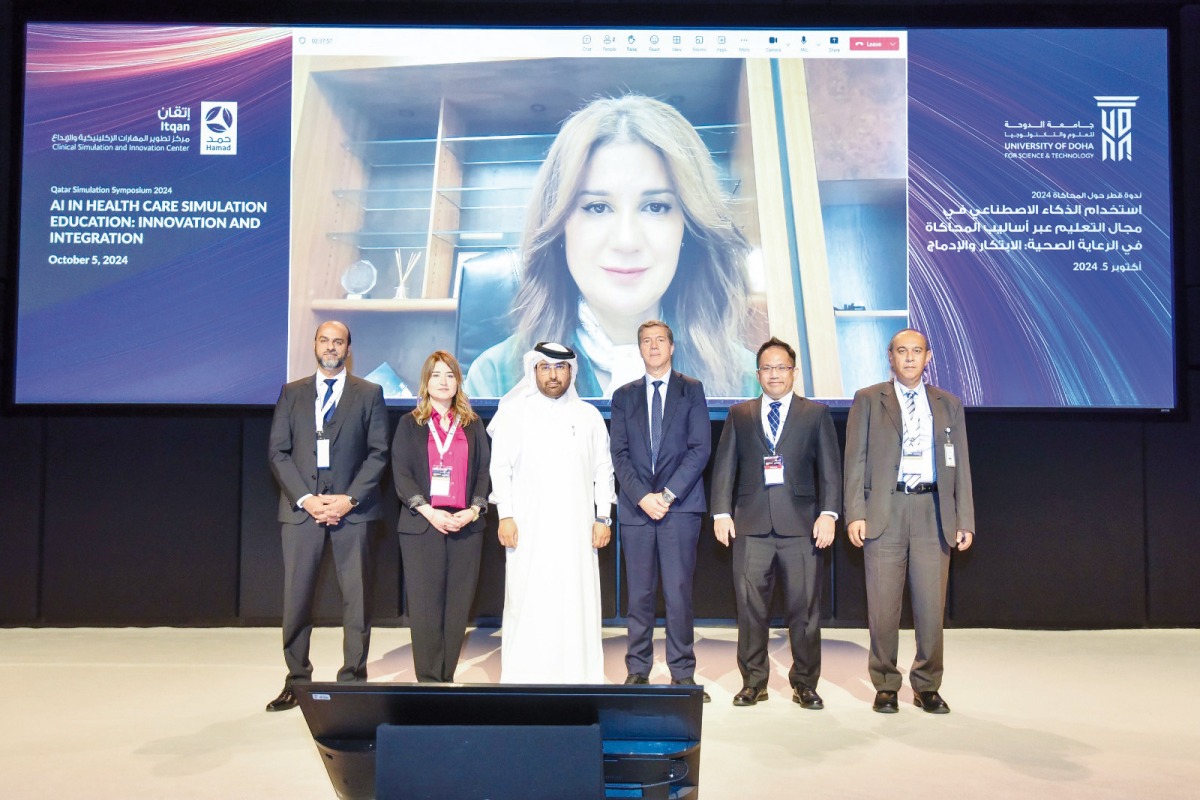The University of Doha for Science & Technology (UDST) recently hosted the 5th Annual Simulation Symposium in collaboration with Hamad Medical Corporation and Weill Cornell Medicine-Qatar. This event brought together educators, experts, and innovators from Qatar and around the world to explore the transformative potential of artificial intelligence (AI) in healthcare simulation education. The symposium showcased the latest advancements in AI, shared insights, and encouraged collaboration to enhance simulation-based learning and training in healthcare. This initiative aligns with Qatar’s National Vision 2030, which focuses on promoting sustainable development, advancing education and healthcare, and driving economic diversification.
Dr. Rachid Benlamri, Vice-President of Academic Affairs at UDST, emphasized the importance of advancing the expertise of faculty and professionals in healthcare through interactive experiences like this symposium. By facilitating knowledge exchange, UDST aims to enhance the skills of educators, experts, professionals, and students in healthcare. Through initiatives like this, UDST is preparing the next generation of innovative leaders in healthcare, equipping them with practical, real-world learning opportunities that bridge theory with hands-on application. This approach empowers students and professionals to excel in simulation and technology knowledge within the sector.
Dr. Fred Saleh, Acting Dean of the College of Health Sciences, highlighted the significance of hosting such symposiums in providing professionals and the community with an opportunity to experience the future of AI-based healthcare education. By enhancing skills and preparing individuals for the evolving landscape of the industry, symposiums like this contribute to the advancement of healthcare education and patient care. The event also featured Dr. Sola Bahous, Professor of Medicine and Dean of the School of Medicine at the Lebanese American University, who discussed the importance of AI in healthcare and shared insights from her role on the International Advisory Committee on Artificial Intelligence.
Lewis Chang, Head of Medical VR at HTC VIVE, was another speaker at the symposium, showcasing his expertise in developing medical AI and VR products. Chang has received two prestigious personal medical innovation awards for his contributions in the medical field. The symposium concluded with key insights on AI integration in healthcare simulation, emphasizing the need for collaboration to overcome challenges and drive innovation in the healthcare sector. By highlighting advancements in AI and offering professional development opportunities, the event reinforced its commitment to improving healthcare education and patient care.
In conclusion, the 5th Annual Simulation Symposium hosted by UDST, in collaboration with Hamad Medical Corporation and Weill Cornell Medicine-Qatar, brought together experts, educators, and innovators to explore the potential of artificial intelligence in healthcare simulation education. Through knowledge exchange, interactive experiences, and collaboration, the symposium aimed to enhance skills, prepare professionals for the evolving healthcare industry, and empower the next generation of healthcare leaders. By emphasizing AI integration in healthcare simulation and offering professional development opportunities, the event underscored its commitment to advancing healthcare education and improving patient care.










